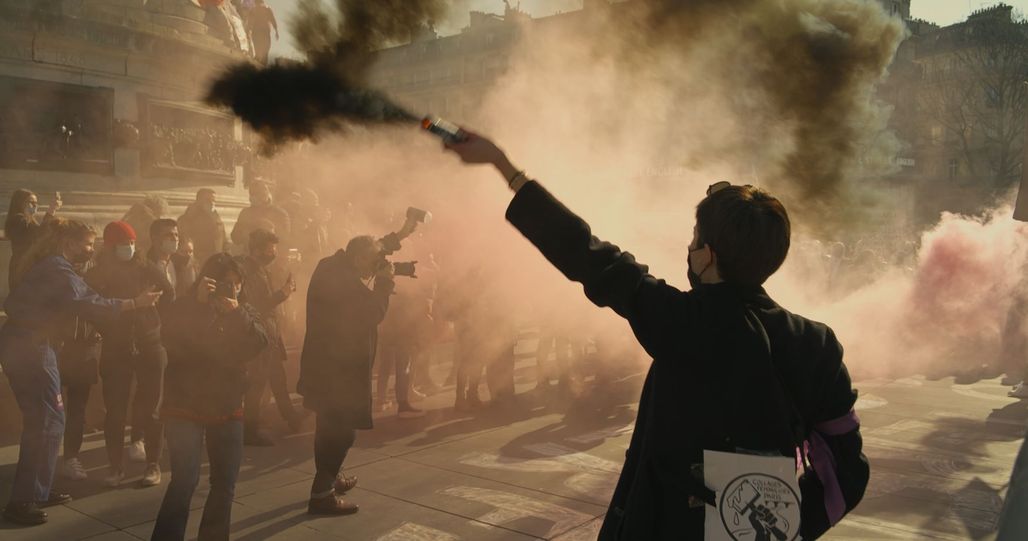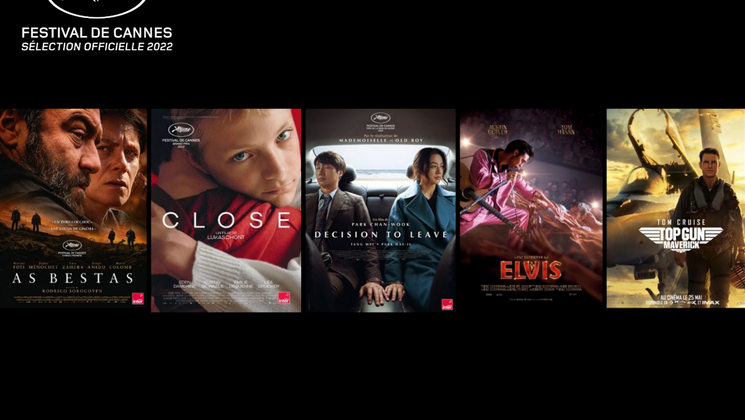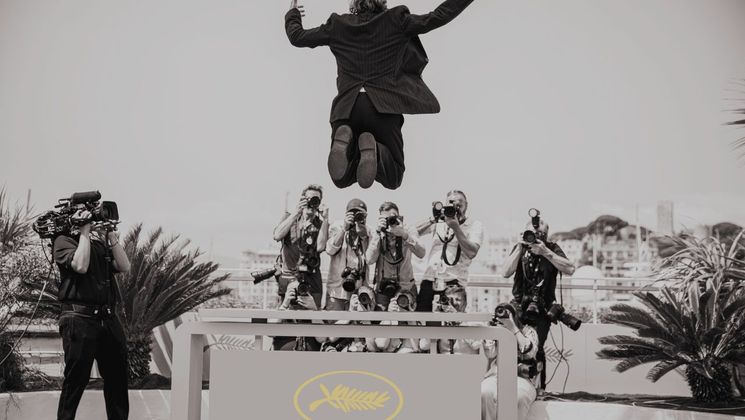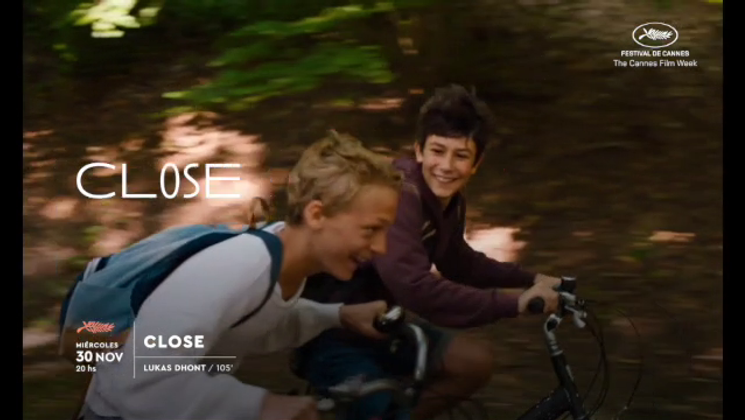
Celebrating a commitment to causes through cinema

Forget looking backwards: the 75th edition of the Festival de Cannes has sought to raise the voices of today and tomorrow, upholding a world in which artists' commitments to causes are tangible, and cinema is ever more politically minded.
Forever faithful to its roots as a force that stands against fascism, now more than ever before the festival is reasserting its urge to defend the values of freedom it holds so dear. Freedom for peoples, freedom for women, the freedom to create and the freedom to live: all the things that illustrate just what makes film such an important part of our lives.
Right from the opening ceremony, the tone was set as Ukrainian President Volodymyr Zelensky reminded us that "our future depends on cinema". At war now for three months, his country is being ravaged by conflict, and the film industry has not remained silent. In Selection are two Ukrainian films, Glorious Revolution by Masha Novikova and its dissection of the 2014 internal conflict, and Mariupolis 2 by Mantas Kvedaravičius, which looks at the current Russian offensive on Ukraine's eastern front. In addition to this, Ukrainian filmmaker Dmytro Sukholytkyy-Sobchuk took to the Directors' Fortnight with his feature film Pamfir.
As if in echo to these artists' thoughts, this year's Cannes Classics served up several works covering past cries that still resonate today. One example is Viva La Muerte (Long Live Death) by Fernando Arrabal in a 4K restored version. This 1971 drama follows the trials and tribulations of Fando, a young boy on a quest to track down his father who went missing in Franco's Spain. The filmmaker intended it as a way of denouncing the censorship and religious bans that kept his home country muffled and bound – a country he was forbidden from entering. Six years later, and Madrid had emerged back into the light of democracy, like a symbol of how, with enough political campaigning and cultural and human action, even the worst dictatorships can be toppled. As Volodymyr Zelensky reminded the audience at the Grand Théâtre Lumière, "Do not despair. Hatred will eventually disappear and dictators will die. We have to win this victory and we need cinema to ensure that this end is always on the side of freedom".
The fight against authoritarian regimes isn't restricted to Ukraine, either: in a swipe at the populism eating away at his country, Turkish director Emin Alper brings us a tale of corruption in rural Anatolia with his Kurak Günler (Burning Days). This same battle against intolerance forms the backbone to James Gray's Armageddon Time, which shines a light on the excesses of 1980s America's elite educational system, and its everyday racism fuelled by the Trump family.
Guillermo del Toro put it well during our session on the cinema of the future: "Every single work of art is political. Every single attitude you take towards it is political".
From the moment an artist expresses their vision, they inevitably take a stance, and this can vary in its political intensity. 2022 gave pride of place to feminism’s struggles. The fight against sexist violence was everywhere in this 75th edition, from the screen to the red carpet. In Competition, Holy Spider by Ali Abbasi homes in on a manhunt for a prostitute-killer in Iran, while Park Chan-wook's new film Heojil Kyolshim (Decision to Leave) focuses on a victim of domestic violence. But the feature film with the clearest, loudest message in favour of women's rights remains Riposte Féministe (Feminist Riposte), shown during a Special Screening. This documentary by Simon Depardon and Marie Perennès follows women's collectives striving to reclaim public space across France through their collages. As the film's crew and cast took to the red carpet and steps, a banner unfurled, featuring the names of the 129 victims of feminicide in France since the last Festival de Cannes, in July 2021.
The fight continues. And ever since 1927 and The Jazz Singer, cinema has found something to tell us, whether at the Festival de Cannes or in cinemas around the world.


